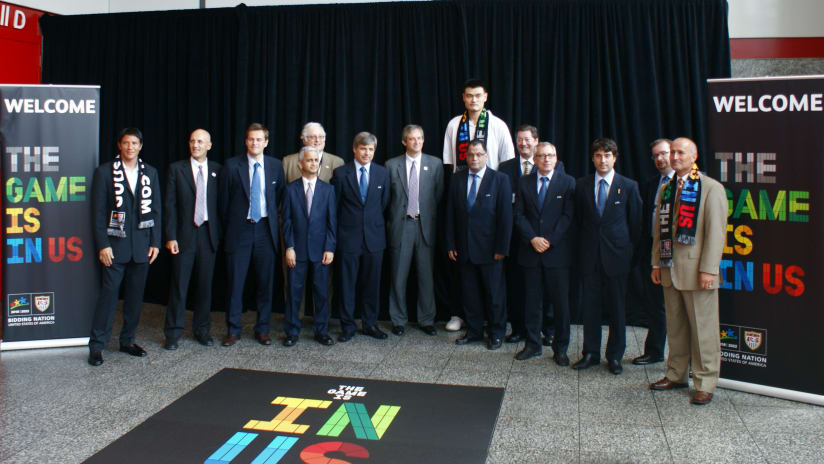Mission accomplished.
U.S. Soccer Federation president Sunil Gulati indicated as much on Friday after the conclusion of the three-day, five-city visit by FIFA’s World Cup inspection team.
“We were able to show FIFA the things they needed to see,” Gulati said in a conference call with reporters. “It’s impossible not to be impressed by some of the magnificent NFL stadiums on this trip.”
The USSF president indicated that the issues that the FIFA representatives were especially focused on included: stadiums, hotels, airports, training facilities, security, and government support.
The configuration of NFL stadiums for soccer was one area of concern for FIFA officials, but Gulati confirmed that the US Bid Committee guaranteed that every stadium can reach the FIFA mandated 75-yard width.
“We did have some private conversations about some things I thought we can make improvements in,” Gulati said. “The stadium width issues and the sight lines. The quality of the playing surface is not what we would have at the World Cup. We discussed that. We’ve always known in an open society like the U.S., there are things we can and can’t do. We had a frank discussion about government guarantees.”
The FIFA inspection team will be charged with writing up a detailed report of the U.S. bid and sharing it with the 24 members of the FIFA Executive Committee. Those 24 individuals have final say on determining the World Cup hosts.
WATCH: FIFA visits Dallas
“How much it influences them is a case-by-case basis,” Gulati said. “Some will certainly be influenced. To what degree I can’t predict.”
The U.S. Soccer Bid Committee will have one final impression to make at the formal bid presentation a day before the Dec. 2 announcement of the 2018 and 2022 World Cup hosts. Gulati expects several executive-committee members to have already made their decision by then.
With 83 days remaining until the World Cup D-Day, the U.S. bid also has some cards to play. China’s and FIFA’s desire to stage the World Cup in the Asian country in 2026 would favor the U.S. chances for 2022.
Also, since the U.S. is yet to withdraw from the running for the 2018 event, which is likely to go to a European nation, the American bid can leverage CONCACAF’s Executive Committee votes for 2018 into support from other countries for the USA in 2022.
Gulati will have an idea as to whether that leveraging will be necessary after a FIFA Executive Committee meeting in October that will give the U.S. bid an early indication as to where it stands in the race.
“We haven’t been asked to withdraw,” Gulati said. “If it’s in our best interest to withdraw from 2018 before Dec. 2, we would do that.”


